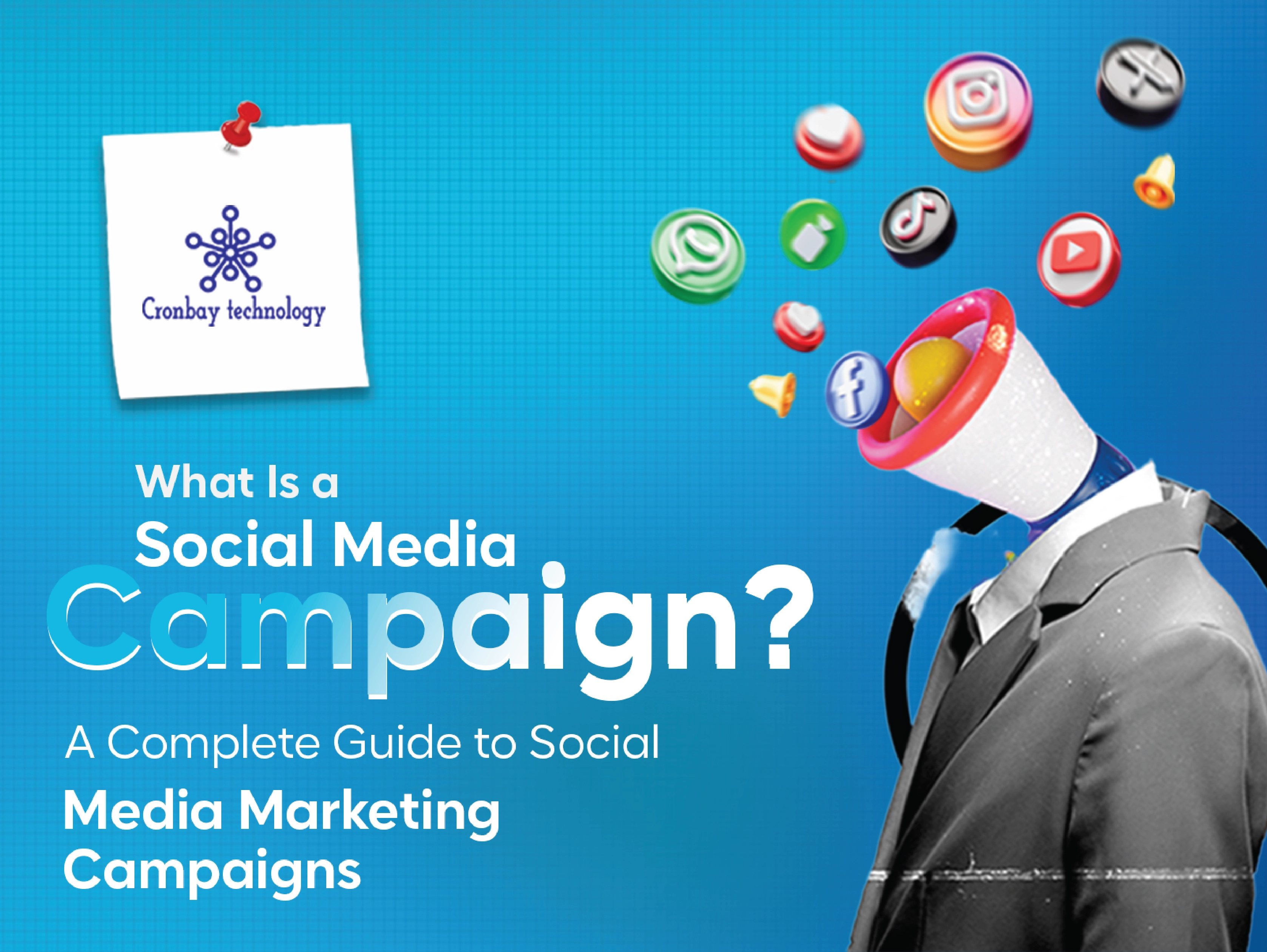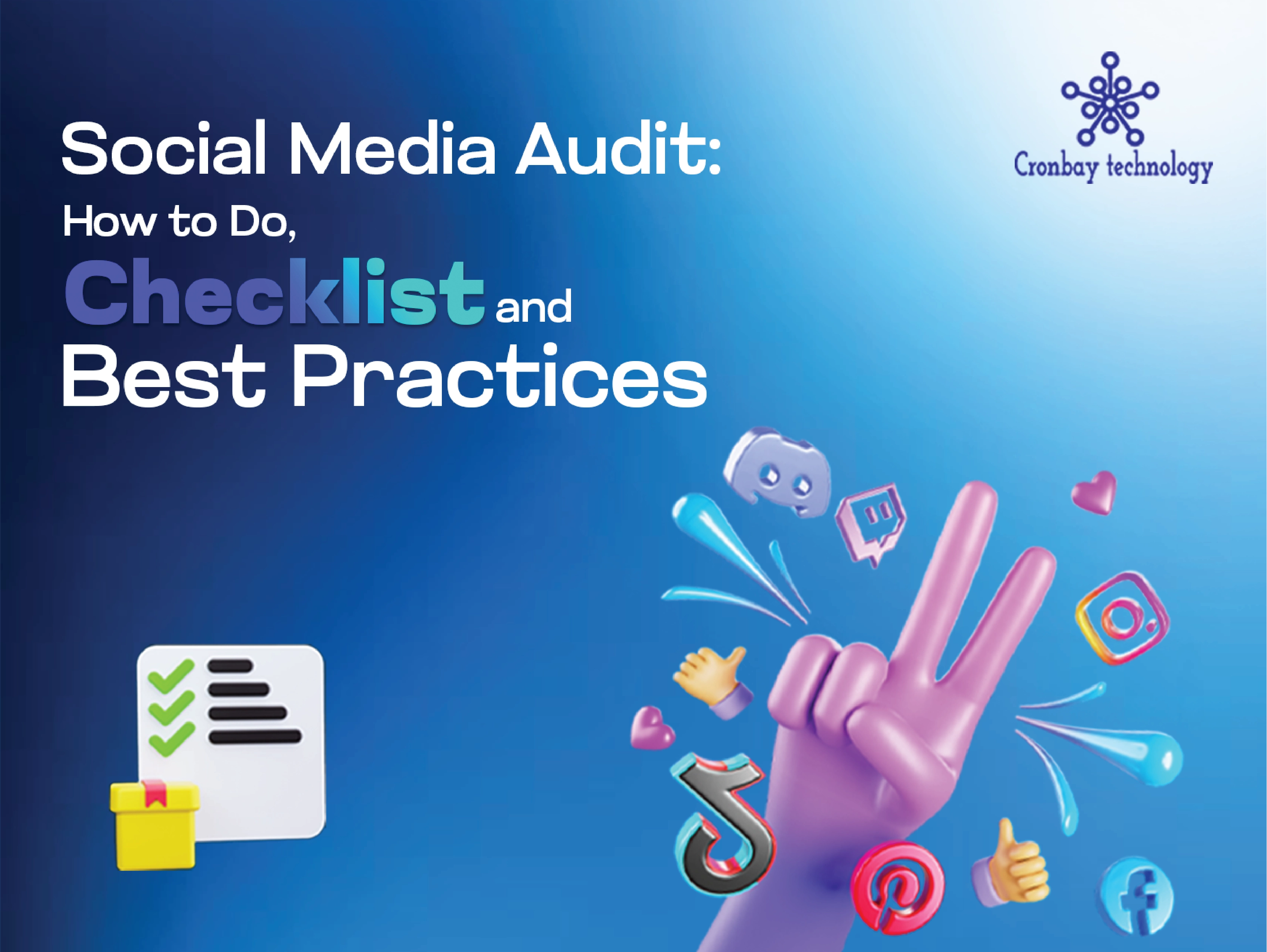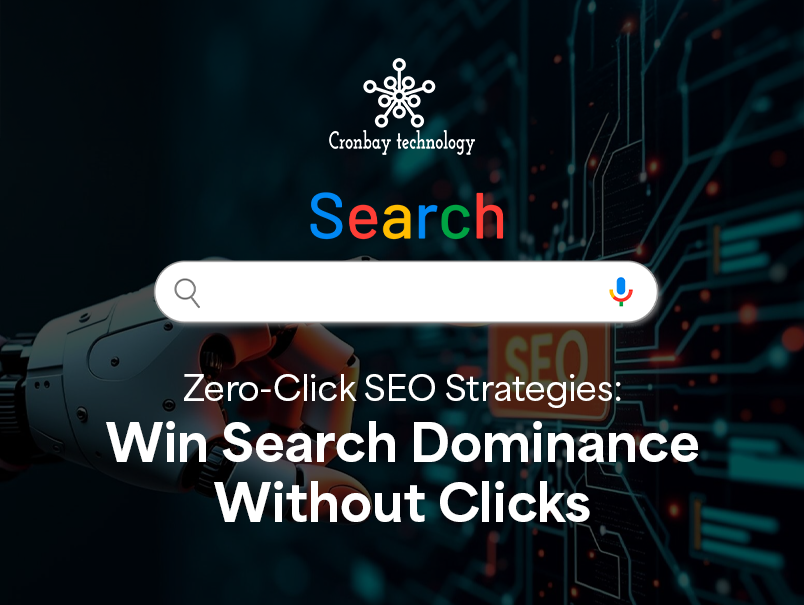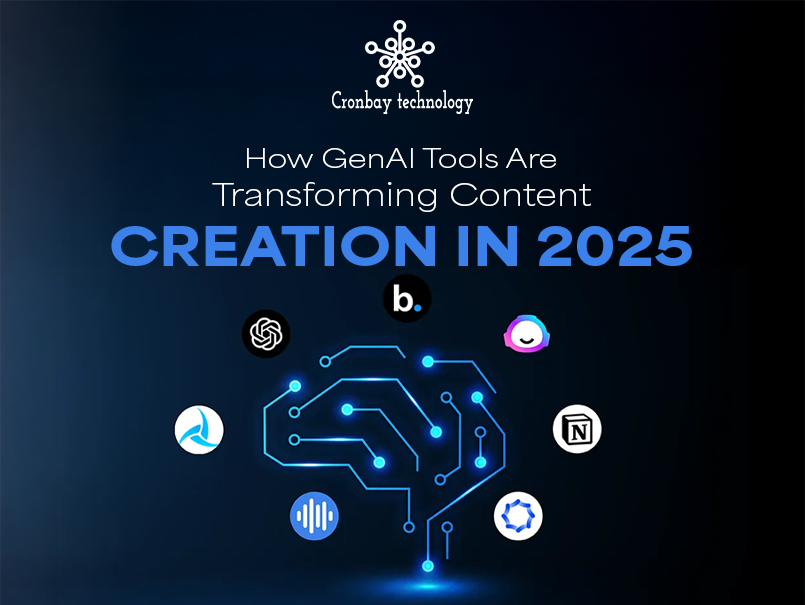Hello SEO enthusiasts! Have you explored how AI and machine learning are changing SEO strategies? We know
you’re busy with endless R&D behind the scenes, but it’s time to take notice of AI’s impact.
From transforming marketing approaches to introducing cutting-edgemachine learning SEO
strategies, AI’s role in making major headlines.
To give you a quick gist of how the combo blend of AI and machine learning in
SEO is driving organic traffic, Cronbay has created an in-depth guide.
Whether you're looking to exploreAI applications in SEOor discover
thebest AI tools for SEO optimization in 2024, this guide has got you covered.
So, don't wait! Let’s dive in and watch your SEO results reach new heights now!
What is AI in SEO?

Before you get into in-depth about how AI and machine learning are changing SEO strategies in
2024, let us decode the basics.
To be simple, AI in SEO works like a team of experts that never
sleeps, constantly analyzing data, spotting trends, and finding ways to boost your website’s
visibility. It uses machine learning, which is again part of AI, to handle large amounts of
data, automate routine tasks, and make smart decisions to improve your search rankings. In
real terms, AI can help your brand in -
-
Finding high-impact keywords to boost organic traffic.
-
Analyzing competitor strategies to give you an edge.
-
Personalizing content for users with accuracy.
-
Predicting search trends to keep you ahead.
-
Automating repetitive tasks, saving time.
And that’s just the beginning—AI in SEO is always evolving. So, making it a must-have tool for anyone looking to improve their search rankings is the key.
How Machine Learning Boosts SEO?
As mentioned earlier, AI uses machine learning to improve your SEO efficiency. You can think of machine learning as the ‘beating heart’ of AI that drives your SEO to new heights. To understand how AI and machine learning in SEO can be a mastermind game, here’s an example:
Assume machine learning is the personal coach for SEO strategy. Just like a coach learns your strengths and weaknesses, and helps you improve with each session. Machine learning studies the data and refines your SEO tactics. However, the only difference here is instead of following fixed rules, it analyzes massive amounts of information, finding hidden patterns and insights.
Hence, the more data it processes, the better it understands your audience's search behavior. This means your SEO strategy keeps getting better, just like how you improve with a good coach.
Top 13 Applications of AI in SEO

-
AI and Search Intent

The first AI application in SEO is AI-powered search intent AI helps analyze search intent by quickly processing large amounts of data, spotting trends in user behavior, and adapting to changing search algorithms in real-time. By using AI SEO tools, marketers can better -
- Understand customer needs.
- Create content that aligns with specific search intent.
-
AI Backlink Analysis
The second key benefit of using AI and machine learning in SEO is the improvement in backlink analysis. Machine learning algorithms can evaluate backlink profiles by analyzing the quality and relevancy of each link. This helps marketers -
- Identify valuable backlinks and flag harmful ones.
- Enable more effective backlink management strategies.
-
AI Link Building

The third essential application of machine learning SEO strategies is AI link-building. Natural Language Processing also known as NLP is an AI tool that identifies effective phrases and keywords for better messaging.
For example, if you're a travel blogger, NLP can highlight phrases like ‘wanderlust’ that resonate with potential partners. You can use these insights and craft messages that align with your user's interests. -
Video SEO AI

The fourth on the list of AI Applications in SEO is AI video. AI video tools use algorithms to -
- Automate video production.
- Analyze data to find trends.
- Optimize videos for better quality performance, & targeting.
Thereby, minimizing the tedious tasks like editing, captioning, and thumbnail creation, and making the video creation process faster.
-
AI Site Performance
The fifth on the list of how AI is changing SEO in 2024 is boosting site performance. For example, AI Chatbots can handle inquiries, guide navigation, and offer personalized assistance that enhances user experience.
-
AI Image Optimization
The sixth on the list of how AI is changing SEO in 2024 is AI image optimization. AI technology can automatically analyze images to generate relevant alt text, images that lack proper alt text, or generic descriptions and suggest improvements.
-
Personalization SEO AI

The seventh way AI is changing SEO in 2024 is through personalized content recommendations. AI analyzes user behavior, past interactions, and demographics to suggest tailored content. Thereby, boosting user experience and improving SEO results.
-
AI Keyword Research

The eighth way on the list of how AI is changing SEO in 2024 is through keyword research. For instance, AI-driven SEO tools scan large data sets, social media trends, and competitor content and identify trending keywords. This reduces guesswork and improves targeting accuracy.
-
Local SEO AI
The ninth key benefit of using AI and machine learning in SEO is effective local SEO. Advanced AI SEO tools enhance local search optimization by -
- Delivering faster, more accurate insights into local rankings.
- Providing effective optimization recommendations.
- Analyzing customer sentiment from thousands of reviews.
This transformation helps businesses improve their local search positions and outpace competitors more efficiently.
-
AI Voice Search Optimization
The tenth essential application of machine learning in SEO is local SEO. AI drives digital assistants and voice search technologies, allowing them to -
- Process natural language.
- Understand complex commands.
- Deliver relevant responses.
These advanced AI tools make search more accessible and convenient, expanding SEO practices for voice search queries.
-
NLP Semantic Search in SEO

The eleventh essential application of machine learning in SEO is NLP semantic search. NLP helps search engines understand the meaning behind user queries rather than just matching keywords.
For example, if someone searches for ‘tips for training a puppy’, semantic search understands that they’re looking for advice on training a young dog, not just any tips or training methods. Thereby, reflecting their ongoing interest. -
AI for SEO Audits
The next on the list of how AI is changing SEO in 2024 is enhanced SEO audits. AI-powered tools can identify issues like broken links, keyword gaps, and technical errors more efficiently than manual audits, allowing for more precise and timely improvements to your SEO strategy.
-
AI in Mobile SEO
The last key benefit of using AI in SEO is optimizing mobile SEO. AI technologies enhance mobile search performance by analyzing user behavior on mobile devices. This analysis provides insights for -
- Improving mobile site design and functionality.
- Addressing issues like slow load times and poor navigation.
Ultimately, boosting mobile search rankings and user experience.
That's it for the top applications of how AI and machine learning are changing SEO strategies. Now, let us check out the emerging trends of AI and machine learning in SEO that require you to keep an eye on.
Top 3 Emerging Future Trends of AI in SEO

-
Enhanced Multi-Channel Optimization
multi-channel optimization. Users now love engaging with content across various platforms. Therefore, focusing on the below key areas is vital now.
- Tailoring content for various platforms like search engines, social media, and mobile apps.
- Creating high-quality and shareable content that meets each platform's specific requirements.
- Regularly analyzing performance using tools like Google Analytics.
By doing so, you can refine your strategy and enhance audience engagement across different channels. -
Increasing Zero-Click Searches
The second trend in AI for SEO to watch in 2024 and beyond is the rise of zero-click searches. To be simple, zero-click searches involve the process of finding the information users need right on the search engine results page (SERP) without clicking on any links.
For instance, if a user searches for ‘best Italian restaurants near me,’ he/she can see the details right there in a local or map pack, so no click is needed. According to SEMRUSH findings, 57% of mobile searches and about 25% of desktop searches end without a click.
So, to stay ahead, brand owners must aim to secure featured snippets for relevant searches. -
Google’s Emphasis on E-E-A-T
The third trend to keep an eye on is Google’s growing focus on E-E-A-T, which stands for ‘Experience, Expertise, Authoritativeness, and Trustworthiness’. In today's time and near future, Google will be seen placing a higher value on content that shows these four qualities.
For example, if you run a medical website, your content should be created or reviewed by qualified medical professionals to ensure it’s accurate and reliable. To boost your E-E-A-T, make sure your -- Content is written by experts.
- Build a strong online reputation with positive reviews and reputable backlinks.
- Uphold high editorial standards with thorough fact-checking.
Focusing on E-E-A-T will ultimately help improve your search rankings, build trust with your audience, and position you as a credible source in your field.
Bonus Tips: Top 3 AI SEO Tools To Speed Up Your Work

Below we have listed some AI tools for boosting your SEO game.
-
BrightEdge
The first on the list is the BrightEdge AI tool. It offers a range of SEO tools from intent signals, data cubes, hyperlocal insights, content recommendations, website reporting, and story builders to share voice and keyword reporting.
-
Dialogflow
The next on the list is the Dialogflow AI tool. This SEO tool leverages voice search platforms like Google Assistant and Alexa, using named entity recognition to analyze spoken user queries.
-
Surfer
The third on the list is Surfer. This SEO tool leverages AI to compare your site with top competitors, providing actionable insights to improve your rankings.
A Key Case Study of AI in SEO

Rocky Brand, a footwear retailer, wanted to boost its organic search revenue with SEO-friendly content. They used BrightEdge’s tools to achieve this.
Here’s how they used these tools:
- Data Cube helped the brand find the right keywords to attract more visitors to their website.
- BrightEdge Recommendations guided in improving their content, including page titles and meta tags.
- Storybuilders led to experience how their website changes affect brand reputation and revenue.
- Keyword and Page Reporting helped the brand monitor how well their keywords and content were performing.
- A 30% increase in search revenue
- A 74% rise in year-over-year revenue
- A 13% growth in new users
-
Reliance on Accurate Data
The first drawback of AI in PPC is its reliance on accurate data. If the data is incorrect or biased, AI can make poor decisions, harming campaign performance.
-
Decreased Creativity and Human Touch
The second drawback of AI-driven PPC advertising technology is losing the human touch and creativity. Over-reliance on AI can lead to generic ads, lacking the uniqueness that attracts audiences.
-
Privacy and Ethical Risks
The third drawback of leveraging advanced PPC optimization is ethical and privacy concerns. AI collects vast amounts of user data, which raises privacy issues. Hence, businesses must always adopt measures to protect user data and comply with privacy laws.
Ending Note
Incorporating AI into your SEO strategy can greatly transform your digital marketing approach. From cutting-edge keyword research and content optimization to tailored user experiences and streamlined technical SEO, AI provides numerous advantages.
Incorporating AI into your SEO strategy can greatly transform your digital marketing approach. From cutting-edge keyword research and content optimization to tailored user experiences and streamlined technical SEO, AI provides numerous advantages.
So, are you ready to transform your SEO strategy? Don’t wait! Get in touch with Cronbay's SEO experts and watch how our AI-driven solutions can take your SEO to the next level.
Frequently Asked Questions
Q1.How does AI improve keyword research for SEO?
Ans. AI algorithms enhance keyword research by analyzing search trends, predicting keyword performance, and uncovering long-tail keyword opportunities more effectively than traditional methods.
Q2. Can AI tools help in creating SEO-optimized content?
Ans. Yes, AI tools can help create content that is both reader-friendly and optimized for search engines by suggesting relevant keywords and effective content structures.
Q3.How does AI assist in SEO analytics and reporting?
Ans. AI tools can handle large amounts of SEO data, providing valuable insights and actionable recommendations through advanced analytics and automated reporting.
Q4. Is AI effective in local SEO optimization?
Ans. Yes, AI is effective in local SEO by analyzing local search trends, optimizing for geo-specific keywords, and managing local business listings.
Q5. Can AI personalize user experiences for better SEO results?
Ans. Yes, AI can personalize website content and user experiences based on individual behavior and preferences, which can improve engagement metrics that impact SEO.





